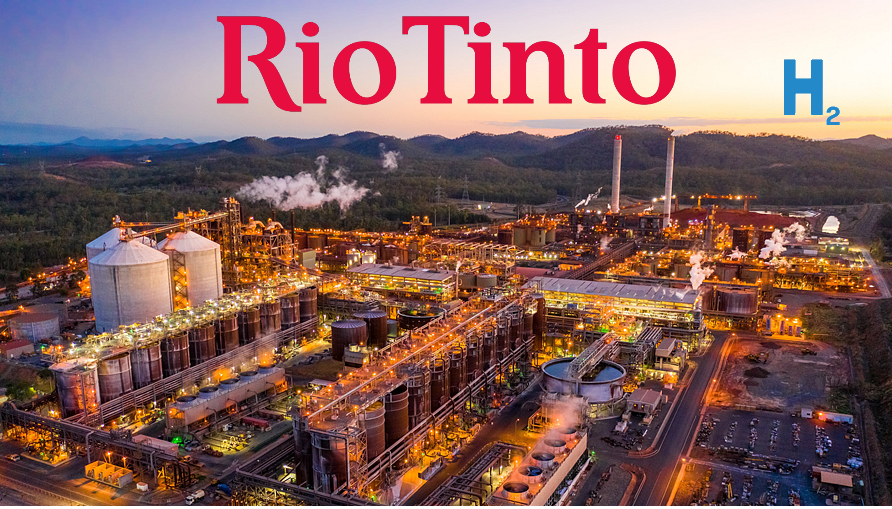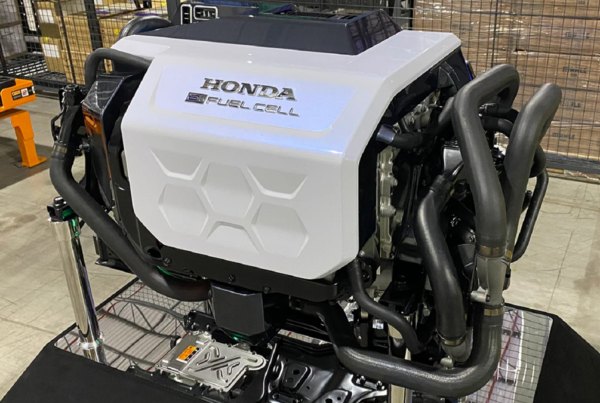
The Australian Renewable Energy Agency (ARENA) has awarded up to $579,786 in funding to Rio Tinto on behalf of the Australian government to conduct a feasibility study looking at the possibility of partially decarbonizing its alumina refining processes using renewable hydrogen.

Natural gas is used in traditional alumina refining to generate the high temperatures required in the calcination process. Rio Tinto’s Yarwun alumina refinery in Gladstone, Queensland, will look into the technical implications of replacing natural gas with renewable hydrogen.
The outcome of the study will be used to determine the viability of a possible demonstration project to validate the findings. The $1.2 million research will be shared into two work packages, each sponsored equally by ARENA and Rio Tinto:
- At Rio Tinto’s Bundoora Technical Development Centre in Melbourne, Victoria, a lab size reactor was used to simulate the calcination process.
- Rio Tinto Yarwun undertook a preliminary engineering and design study, to better understand the construction and operational requirements of a possible demonstration project at the refinery.
The research will help to better understand the potential for renewable hydrogen to be utilised in the alumina refining process. It will also highlight the extent of development work needed to integrate hydrogen-fuelled calcination technology at an existing alumina refinery.

Australia produces the most bauxite and exports the most alumina in the world, accounting for 15% of worldwide alumina refining capacity. Alumina refining is a high-energy process that employs high-pressure steam to provide the heat needed to convert bauxite to alumina. In a smelting process, alumina may be transformed into aluminium.
Because of the potential scale of emissions abatement, ARENA has designated the alumina sector as a significant priority in its plan to assist the industry in reducing emissions. Alumina refining emitted around 14 million tonnes of carbon dioxide in Australia in 2019, accounting for almost 24% of the country’s scope 1 manufacturing emissions.
The first Low Emissions Technology Statement issued by the Australian government highlights the necessity, of building a low-emission steel and aluminium sector to assist cut emissions and increasing economic activity. Metals refining innovation can increase Australia’s steel and aluminium production’s competitiveness and emissions intensity.
Alcoa received $11.3 million from ARENA last month to study and install a new technology that uses recycled steam for process heat and is driven by renewable energy.
Rio Tinto’s research will examine the potential for hydrogen to cut emissions across the aluminium supply chain, according to ARENA CEO Darren Miller, and will complement ARENA’s support for Alcoa’s initiative.
“If we can replace fossil fuels with clean hydrogen in the refining process for alumina, this will reduce emissions in the energy and emissions-intensive refining stage of the aluminium supply chain. Exploring these new clean energy technologies and methods is a crucial step towards producing green aluminium. This study will investigate a potential technology that can contribute to the decarbonisation of the Australian alumina industry. If successful, the technical and commercial lessons from Rio Tinto’s study could lead to the implementation of hydrogen calcination technology, not only in Australia but also internationally,” added Darren Miller.
Rio Tinto is responsible for around a third of Australia’s total alumina capacity. Rio Tinto wants to be carbon neutral in all of its activities by 2050. From a 2018 baseline, the corporation is aiming for a 15% decrease in absolute emissions and a 30% reduction in emissions intensity by 2030.
“We see the ARENA and Rio Tinto-funded study as a step towards reducing refinery emissions and one that has the potential to play an important part in Rio Tinto’s commitment to decarbonisation. We’re investing in work that needs to be done, not only to decarbonise one of our sites but also to help provide a lower-emissions pathway for Rio Tinto and the global aluminium industry. We recognise we are on a long road towards reducing emissions across our operations and there is more work to be done. But projects such as this are an important part of helping us get there,” added Daniel van der Westhuizen, acting managing director at Rio Tinto Aluminium Pacific Operations.
Source: AlCircle
Read the most up to date Fuel Cell and Hydrogen Industry news at FuelCellsWorks




